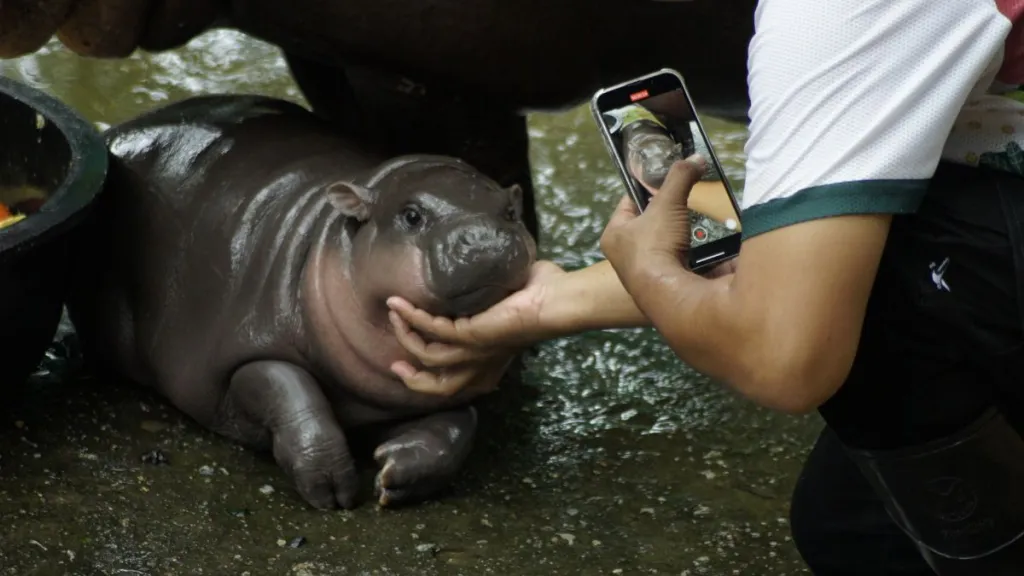Moo Deng fans can rejoice as the pygmy hippo is about to get a livestream of her own. Residing in a zoo in Thailand, the adorable baby hippo started gaining traction a few weeks ago. After enjoying a month of immense popularity with netizens gushing over her cuteness, Khao Kheow Open Zoo has decided to start a 24-hour livestream. The setup is currently in progress. The livestream will be available to the public towards the end of September.
Baby hippo Moo Deng’s antics can be livestreamed
Moo Deng made her Instagram debut on September 6, with the pygmy hippo’s cuteness quickly winning over everyone. Her highly expressive nature makes her the perfect subject for social media content. Moreover, her videos have garnered millions of views across social media platforms. The adorable baby hippo was born in a zoo in Thailand earlier this year in July.
Khao Kheow Open Zookeeper Atthapon Nundee has been sharing photos and videos of animals under his care for quite some time. However, he didn’t expect Moo Deng to become a viral sensation. As the newborn pygmy hippo started gaining more fans worldwide, he exclaimed it was “beyond expectation.” Atthapon told The Associated Press, “I wanted people to know her. I wanted a lot of people to visit her, or watch her online, or leave fun comments.”
Moo Deng gets her name from a type of meatball that roughly translates to “bouncy pork.” Zookeepers picked her name based on a poll on social media. The best part is that her siblings go by the names Moo Waan and Moo Toon, which translate to “sweet pork” and “stewed pork” respectively.
Some of Moo Deng’s most famous moments are an image of her playfully biting a zookeeper and a video of the baby pygmy hippo mimicking her mom chewing her food. What made the video funnier was the little one was too young to have solids, so all she could do was mimic her mom chomping on her solid food.
Khao Kheow Open Zoo in Thailand is currently seeking to acquire a trademark on “Moo Deng the hippo.” The patent will prevent others from profiting from her, which could help the zoo’s income to improve the lives of its animals further.









